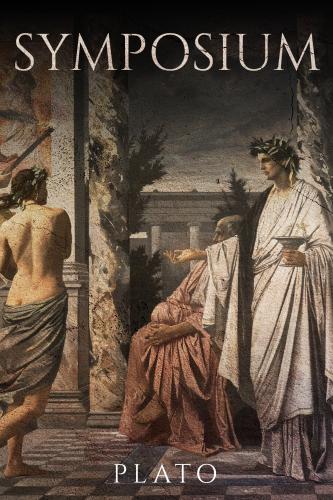All the earlier speeches embody common opinions coloured with a tinge of philosophy. They furnish the material out of which Socrates proceeds to form his discourse, starting, as in other places, from mythology and the opinions of men. From Phaedrus he takes the thought that love is stronger than death; from Pausanias, that the true love is akin to intellect and political activity; from Eryximachus, that love is a universal phenomenon and the great power of nature; from Aristophanes, that love is the child of want, and is not merely the love of the congenial or of the whole, but (as he adds) of the good; from Agathon, that love is of beauty, not however of beauty only, but of birth in beauty. As it would be out of character for Socrates to make a lengthened harangue, the speech takes the form of a dialogue between Socrates and a mysterious woman of foreign extraction. She elicits the final truth from one who knows nothing, and who, speaking by the lips of another, and himself a despiser of rhetoric, is proved also to be the most consummate of rhetoricians (compare Menexenus).
The last of the six discourses begins with a short argument which overthrows not only Agathon but all the preceding speakers by the help of a distinction which has escaped them. Extravagant praises have been ascribed to Love as the author of every good; no sort of encomium was too high for him, whether deserved and true or not. But Socrates has no talent for speaking anything but the truth, and if he is to speak the truth of Love he must honestly confess that he is not a good at all: for love is of the good, and no man can desire that which he has. This piece of dialectics is ascribed to Diotima, who has already urged upon Socrates the argument which he urges against Agathon. That the distinction is a fallacy is obvious; it is almost acknowledged to be so by Socrates himself. For he who has beauty or good may desire more of them; and he who has beauty or good in himself may desire beauty and good in others. The fallacy seems to arise out of a confusion between the abstract ideas of good and beauty, which do not admit of degrees, and their partial realization in individuals.
Конец ознакомительного фрагмента.
Текст предоставлен ООО «ЛитРес».
Прочитайте эту книгу целиком, купив полную легальную версию на ЛитРес.
Безопасно оплатить книгу можно банковской картой Visa, MasterCard, Maestro, со счета мобильного телефона, с платежного терминала, в салоне МТС или Связной, через PayPal, WebMoney, Яндекс.Деньги, QIWI Кошелек, бонусными картами или другим удобным Вам способом.
